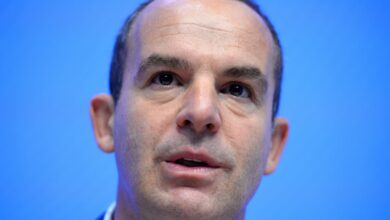Bank of England boss denies being ‘asleep at the wheel’ amid inflation crisis

The UK is in a “bad situation” with inflation, Andrew Bailey, governor of the Bank of England (BoE), told MPs on the Treasury Select Committee.
The cost of living has been driven up by a host of global factors which could not have been foreseen by rate setters at the bank, he said.
These include the war in Ukraine, and the latest response to a wave of Covid-19 infections in China which has included economically damaging, stringent lockdowns. The result had been a sharp and sudden uptick in energy global price, forcing up the cost of living in the UK.
“I do not feel at all happy about this, this is a bad situation to be in,” Mr Bailey said, noting that inflation is expected to top 10 per cent later this year.
The central banker was responding to questions over whether he had been “asleep at the wheel” when it came to rising interest rate pressures, by Treasury select committee chair Mel Stride MP.
About 80 per cent of the forces driving up inflation in the UK were from global effects, Mr Bailey said. Another significant factor, accounting for part of the remaining 20 per e=cent, was a smaller, post-pandemic labour force.
“The scale and persistence of the fall has been very unusual,” Mr Bailey said, adding “these are very fine and pretty hard judgements to make, I have to say”.
Mr Bailey’s remarks followed criticism attributed to British cabinet ministers in a Daily Telegraph news report on Saturday.
Inflation, the rate of price growth in the economy, is at 7 per cent and the BoE predicts it could reach 10 per cent this year. This compares with the central bank’s 2 per cent target which forms a key part of its mandate, often referred to as price stability.
One senior minister said of the BoE: “It has one job to do – to keep inflation at around 2 per cent – and it’s hard to remember the last time it achieved its target.”
A second added that senior figures were “now questioning its independence”, suggesting a case for greater political influence over the Bank which was made independent by Gordon Brown, in a move announced immediately after he became chancellor in 1997.
Still, amid signs of weakening consumer confidence, the BoE may have to juggle the need to curb inflation, with the need to avoid a recession. This is because higher interest rates can often act as a handbrake on economic growth.
The BoE warned that the severe squeeze on households’ living standards would likely trigger a sharp economic slowdown earlier this month.
Ahead of the evidence session, Ed Smith, co-chief investment officer at Rathbone Investment Management, said the outlook for a recession in the UK was worse than in other major economies. As a result, the BoE may be more likely than international counterparts, including the US Federal Reserve and “stop tightening sooner than investors expect”.
“Changes in government spending and taxation are a bigger headwind in the UK than in the US. Meanwhile, the cost-of-living squeeze appears more intense in the UK and British households didn’t accumulate savings to the same extent during the acute phase of the pandemic,” he said.
“Consumer confidence in the UK has also plunged recently, and there have been some worrying signs of weakness in consumer-related data like retail sales and new car registrations,” Mr Smith added.





